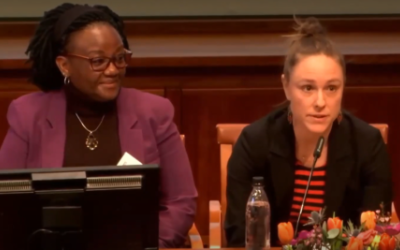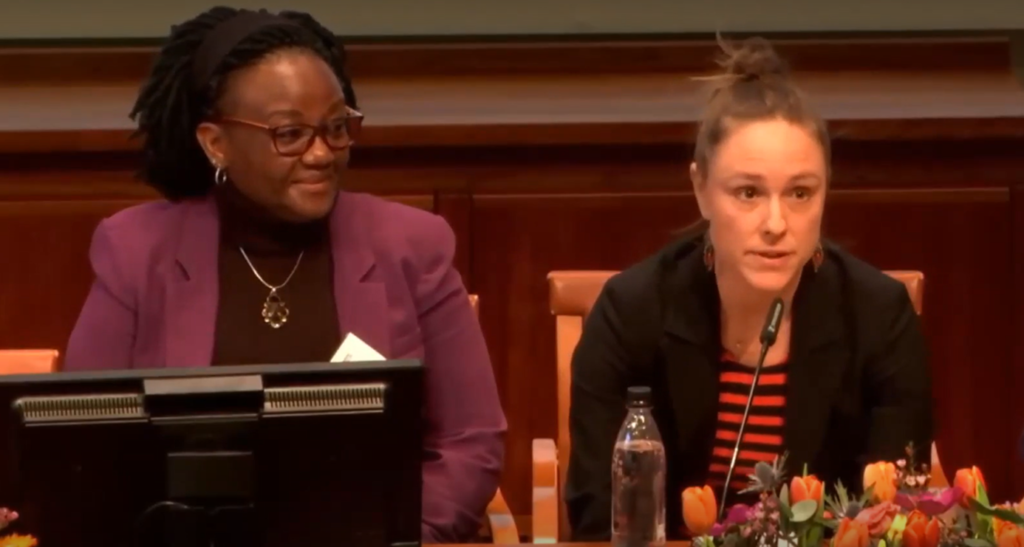CESH seminar contributes to the EU Global Health Strategy

The EU is in the process of setting out its position on the newly launched Global Health Strategy intending to improve global health security and deliver better health for all in a changing world. In an online seminar, organised by the Centre of Excellence for Sustainable Health (CESH), participants worldwide had the opportunity to listen, discuss and contribute to the Strategy.
The online seminar - Global Conversations on Sustainable Health included discussions open to the public, featuring prominent speakers discussing innovative solutions and visions for sustainable health.

From right: Karin Båge, educational developer at CESH and Rhoda Wanyenze, Professor and Dean of Makerere University School of Public Health, project lead for CESH during the plenary session.
The seminar started with a streaming of the onsite half-day seminar organised by Karolinska Institutet in the context of the Swedish Presidency of the Council of the EU.
This was followed by break-out group discussions, where the online participants considered different themes related to health workforce imbalances, i.e. the guiding principle 6 of the Strategy. Over 80 participants worldwide, from various sectors including ministries of health, civil society, private investors, researchers, and students were part of the lively discussion. A summary of the main takeaways from this discussion was later shared in the plenary session.
“An inequitable health system or an inequitable workforce cannot deliver equitable access”
“We concluded that an inequitable health system or an inequitable workforce cannot deliver equitable access”, said Karin Båge, educational developer at CESH as she summarized the group discussion.
Another issue that was highlighted was the importance of respecting health workers capacity to actually carry out their profession.
“This means in practice dignified work environments and dignified work cultures. People need access the functioning equipment so they can do what they are trained to do. They need salary structures that are clear and that include decent pay”, emphasized Karin Båge.
Other important takeaways included the need for inequity to be addressed intentionally and explicitly in policy and practice for example by including community health workers in formal decision-making processes whenever relevant.
